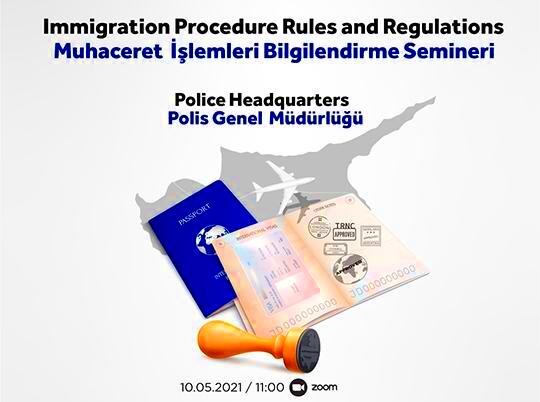Cyprus Immigration Law and Navigating the Legal System
Cyprus immigration law can seem complex, but it’s essential for anyone looking to move to this beautiful island. The laws are designed to manage the flow of people into the country while ensuring that immigrants have the rights and opportunities to thrive. Cyprus is a member of the European Union, which influences its immigration policies. Understanding these laws can help you navigate the system more easily and make informed decisions about your move.
Types of Immigration Permits in Cyprus

In Cyprus, there are several types of immigration permits available, each catering to different needs. Here are the main types:
- Permanent Residency Permit: This is for individuals looking to reside in Cyprus indefinitely. It is usually granted to those who meet specific criteria, such as financial stability and a clean criminal record.
- Temporary Residency Permit: This permit is suitable for those wishing to live in Cyprus for a limited time, often tied to employment or studies.
- Investor Permit: Aimed at those who can invest a significant amount in the country, such as purchasing property or starting a business.
- Student Permit: For individuals enrolled in educational institutions in Cyprus, allowing them to live and study in the country.
Each permit has its own requirements and application processes, so it’s important to choose the one that best fits your situation.
Application Process for Immigration Permits
The application process for immigration permits in Cyprus can be straightforward if you follow the right steps. Here’s a general overview:
- Determine Eligibility: First, ensure you meet the criteria for the permit you’re applying for.
- Gather Required Documents: Common documents needed include:
- Passport or ID
- Proof of income or financial stability
- Health insurance
- Employment contract or enrollment letter (for students)
- Submit Your Application: You can submit your application at the local immigration office or online, depending on the permit type.
- Await Decision: The processing time can vary, so be prepared to wait. You may be called for an interview.
- Receive Permit: If approved, you will receive your immigration permit, allowing you to live and work in Cyprus.
It’s crucial to ensure that all information provided is accurate and complete to avoid delays or rejections. Seeking assistance from legal professionals can also be beneficial.
Rights and Responsibilities of Immigrants in Cyprus
When moving to a new country, it’s essential to understand your rights and responsibilities as an immigrant. In Cyprus, immigrants enjoy several rights that help them integrate into society. Knowing these rights can empower you during your stay. However, with rights come responsibilities, and adhering to them is crucial for a smooth experience.
Rights of Immigrants in Cyprus:
- Right to Work: Most immigrants can seek employment once they have the appropriate permits.
- Access to Healthcare: Immigrants are entitled to basic healthcare services, provided they have valid health insurance.
- Education Rights: Immigrant children have the right to attend public schools.
- Legal Protection: Immigrants have the right to legal representation and protection under Cypriot law.
Responsibilities of Immigrants in Cyprus:
- Complying with Local Laws: It’s important to understand and follow Cypriot laws and regulations.
- Paying Taxes: If you work in Cyprus, you are required to pay taxes just like local residents.
- Maintaining Immigration Status: Ensure that your permits are valid and renewed when necessary.
- Respecting Cultural Norms: Understanding and respecting local customs can enhance your experience and integration.
Legal Assistance and Representation
Navigating the legal landscape in a new country can be daunting, especially when it comes to immigration matters. This is where legal assistance becomes invaluable. Having a knowledgeable attorney or legal representative can help you understand the complex immigration laws in Cyprus and guide you through the application process.
Why You Might Need Legal Assistance:
- Complex Cases: If your situation involves unique circumstances or complications, a lawyer can help navigate the legal complexities.
- Application Support: A legal expert can assist in preparing your application, ensuring all necessary documents are in order.
- Representation in Hearings: If your case requires a hearing, having an attorney can strengthen your position.
- Updates on Law Changes: Immigration laws can change frequently, and a lawyer can keep you informed about any updates that may affect your status.
Finding a good lawyer involves researching credentials, reading reviews, and sometimes seeking referrals from other immigrants or local organizations.
Common Challenges in the Immigration Process
The immigration process in Cyprus can present several challenges, and being aware of these can help you prepare better. Many immigrants face hurdles that can delay their applications or create unnecessary stress. Understanding these challenges can help you navigate the system more effectively.
Common Challenges Include:
- Language Barriers: Language can be a significant obstacle, especially when dealing with legal documents and communication.
- Document Requirements: Failing to provide the correct or complete documentation can lead to application delays or rejections.
- Long Processing Times: Immigration applications can take time to process, leading to uncertainty and frustration.
- Understanding Legal Terms: Legal jargon can be confusing; it’s essential to seek help if you don’t understand certain terms or requirements.
- Emotional Stress: The uncertainty and complexity of the immigration process can cause emotional strain; staying informed and connected can help manage this stress.
Facing these challenges is part of the journey, but with the right information and support, you can navigate the process more smoothly.
Recent Changes in Cyprus Immigration Law
Staying updated on recent changes in immigration law is crucial for anyone looking to move to Cyprus. The legal landscape can shift frequently, impacting applications and residency options. Understanding these changes can help you navigate the system more effectively and avoid unnecessary pitfalls. Here’s a look at some key recent changes in Cyprus immigration law.
Key Changes:
- Streamlined Application Processes: In an effort to attract more foreign investment and skilled labor, the government has introduced measures to simplify the application process for various permits. This includes fewer documents required for certain categories.
- Digital Services Expansion: The Cypriot government has enhanced its online services, allowing applicants to submit their applications electronically. This move aims to reduce wait times and improve efficiency.
- Updated Financial Requirements: There have been revisions in the financial thresholds required for investor and residency permits, making it easier for some individuals to qualify.
- Emphasis on Skilled Labor: Recent laws focus on attracting skilled workers, particularly in sectors facing labor shortages, such as technology and healthcare. New visa categories may emerge to accommodate these needs.
It’s essential to keep an eye on these changes as they can affect your eligibility and the type of permits available. Consulting a legal expert can also provide clarity on how these changes may impact your specific situation.
Resources for Immigrants in Cyprus
When moving to a new country, having access to reliable resources can make all the difference. Cyprus offers a range of resources to help immigrants settle and navigate their new environment. Whether you need legal help, employment assistance, or social support, there are organizations and services available.
Key Resources Include:
- Government Websites: Official government portals provide valuable information about immigration laws, permit applications, and public services.
- Immigrant Support Organizations: Various NGOs and community groups offer assistance with integration, language classes, and cultural orientation. Some notable organizations include:
- The Cyprus Refugee Council
- The Migrant Information Centre
- Legal Aid Services: Many legal firms specialize in immigration law and offer consultations to help you understand your rights and obligations.
- Local Community Centers: These centers can provide social support, networking opportunities, and workshops to help immigrants adjust to life in Cyprus.
Utilizing these resources can significantly ease the transition process, making it easier to settle in and feel at home in Cyprus.
FAQs about Cyprus Immigration Law
Understanding immigration law can be confusing, and many common questions arise during the process. Here are some frequently asked questions about Cyprus immigration law, along with straightforward answers to help clarify your concerns.
Frequently Asked Questions:
- What documents do I need to apply for a residency permit?
Typically, you’ll need your passport, proof of financial means, health insurance, and any specific documents related to your employment or education. - How long does the immigration application process take?
Processing times can vary widely based on the type of permit you are applying for. Generally, it can take anywhere from a few weeks to several months. - Can I work while my application is being processed?
This depends on the type of visa you hold. Some temporary residency permits allow you to work, while others may not. - What should I do if my application is denied?
You can appeal the decision or reapply with additional supporting documentation. Consulting a legal expert can provide guidance on the best course of action. - Are there specific age limits for immigration permits?
Generally, there are no strict age limits, but specific permits may have preferences for younger applicants, especially in work-related categories.
These FAQs can serve as a starting point for your immigration journey, helping to demystify some of the complexities involved.
Conclusion on Navigating Cyprus Immigration Law
Navigating Cyprus immigration law can be a complex process, but understanding your rights, responsibilities, and available resources can make it manageable. Whether you are applying for residency, work, or student permits, staying informed about the latest regulations and requirements is crucial. Legal assistance can provide the necessary guidance to ensure your application is thorough and compliant with current laws. Remember to utilize available resources, such as government websites and immigrant support organizations, to ease your transition. By approaching the process with the right information and support, you can successfully navigate the legal landscape and make Cyprus your new home.


